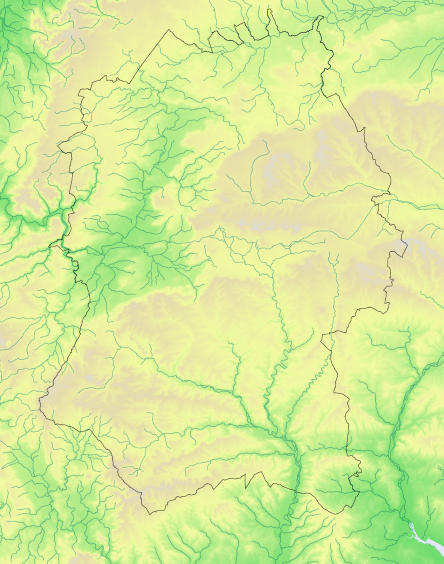Atlas species lists
- Breeding distribution 1995–2000
- Summer abundance 1995–2000
- Winter distribution 1995–2000
- Winter abundance 1995–2000
- Breeding distribution 2007–2012
- Summer abundance 2007–2012
- Winter distribution 2007–2012
- Winter abundance 2007–2012
- Breeding distribution change
- Summer abundance change
- Winter distribution change
- Winter abundance change
More Whooper Swan maps
- Breeding distribution 1995–2000
- Summer abundance 1995–2000
- Winter distribution 1995–2000
- Winter abundance 1995–2000
- Breeding distribution 2007–2012
- Summer abundance 2007–2012
- Winter distribution 2007–2012
- Winter abundance 2007–2012
- Breeding distribution change
- Summer abundance change
- Winter distribution change
- Winter abundance change
Map explanation
This map shows the winter distribution of the species in Wiltshire as revealed by the fieldwork for Birds of Wiltshire (Wiltshire Ornithological Society 2007).
Key
Status
Nos tetrads

Present
0
0%

Not surveyed
Whooper Swan’s breeding range extends from Iceland to far eastern Russia and down through the boreal and steppe regions to central Asia. The 1968-72 Breeding Atlas recorded their presence at eight sites in Scotland, but with no evidence of breeding. The 1988-91 Breeding Atlas found them in 38 sites, mostly in Scotland but including three in northern England. Breeding was confirmed at four of the Scottish locations. Bird Atlas 2007-11 recorded them in 68 British sites with breeding confirmed at 21 including three in southeast England.
The British Isles are a major wintering destination for Whooping Swans, attracting the whole of the Icelandic breeding population (estimated at 30,000 individuals in Bird Atlas 2007- 2011) as well as a scattering from other areas. They concentrate mainly in Ireland, south and central Scotland and more recently in north and southeast England. Bird Atlas 2007- 2011 recorded a range expansion of 35% since the previous winter atlas in 1981-84.
In Wiltshire there have been no records of Whooper Swans in the breeding season, but there have been irregular, and now increasingly common, reports of vagrants in winter. Birds of Wiltshire recorded six reports from the 19th century, 14 during periods of unusually cold winters between 1946 and 1951 and between 1962 and 1966, and three more between 1976 and 1993. Since 2001, as more Whooper Swans have been arriving to winter in the surrounding counties, there have been a further 11 records, involving at least 36 individuals, several of which remained for two to three months.
References
The following references are used throughout these species accounts, in the abbreviated form given in quotation marks:
“1968-72 Breeding Atlas” – Sharrack, J.T.R. 1976: The Atlas of Breeding Birds in Britain and Ireland. T. & A. Poyser
“1981-84 Winter Atlas” – Lack, P.C. 1986: The Atlas of Wintering Birds in Britain and Ireland. T. & A. Poyser
“1988-91 Breeding Atlas” – Gibbons, D.W., Reid, J.B. & Chapman, R.A. 1993: The New Atlas of Breeding Birds in Britain and Ireland 1988-91. T. & A. Poyser
“Birds of Wiltshire” – Ferguson-Lees, I.J. et al. 2007 : Birds of Wiltshire, published by the tetrad atlas group of the Wiltshire Ornithological Society after mapping fieldwork 1995-2000. Wiltshire Ornithological Society.
“Bird Atlas 2007-2011” – Balmer, D.E., Gillings, S., Caffrey, B.J., Swann, R.L., Downie, I.S. and Fuller, R.J. 2013: Bird Atlas 2007-2011: the Breeding and Wintering Birds of Britain and Ireland
“WTA2” – ("Wiltshire Tetrad Atlas 2 ") the present electronic publication, bringing together the Wiltshire data from “Birds of Wiltshire” and “Bird Atlas 2007-11”, together with data from further fieldwork carried out in 2011 and 2012.
"Hobby" - the annual bird report of the Wiltshire Ornithological Society.

